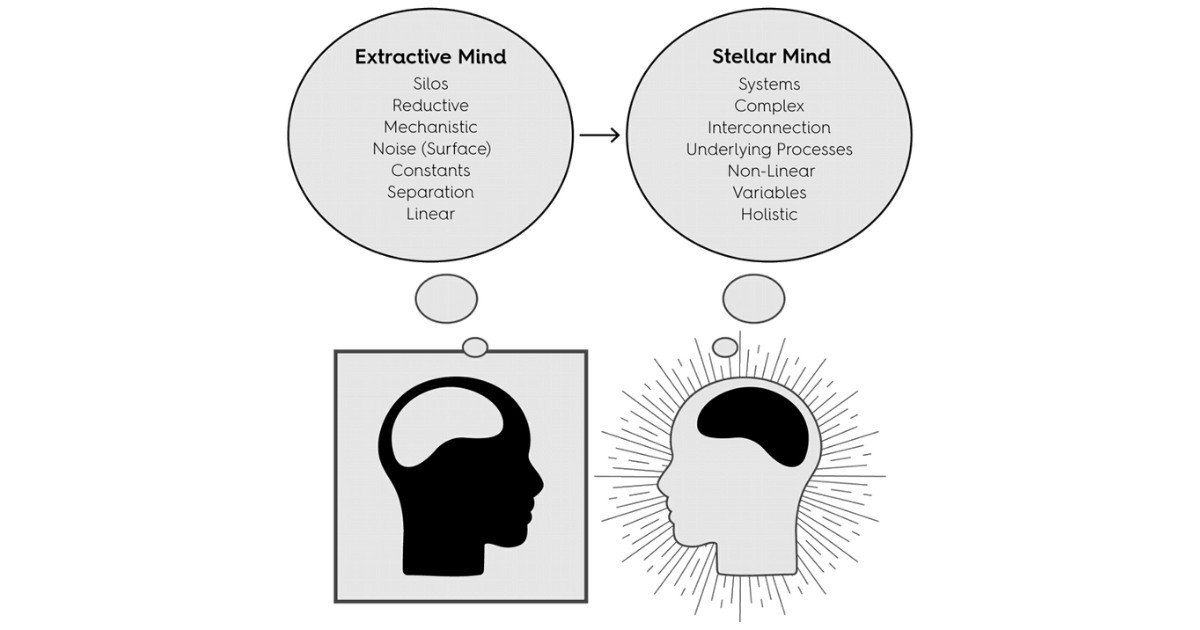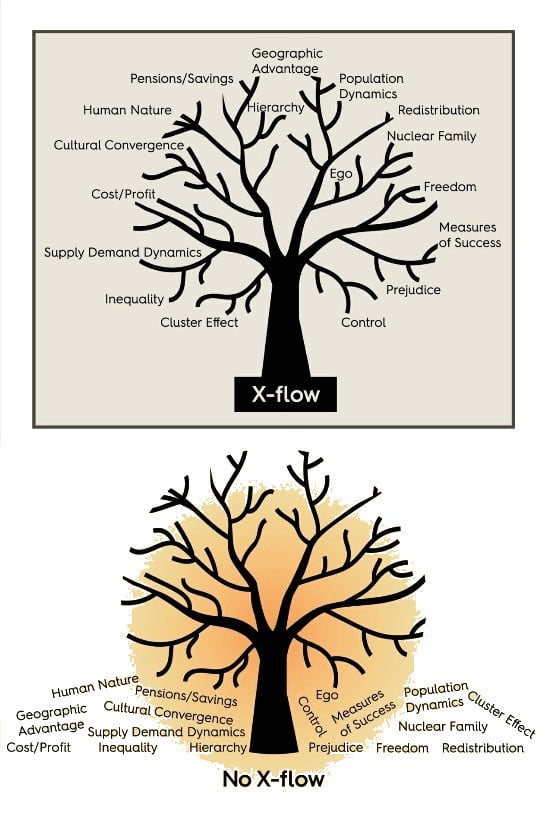Thanks to the technologies we already have, we could step out of the extractive economic system that has shaped our world and our behaviors for millennia. What would this mean from a collective and a personal standpoint, respectively?
| This post is part of a reading series on Stellar, by James Arbib and Tony Seba. To quickly access all chapters, please click here. Disclaimer: This chapter summary is personal work and an invitation to read the book itself for a detailed view of all the authors’ ideas. |
Stellar Societies
In our world, scarcity is created by design because the only asset that matters is financial capital. Resources that could be publicly available are privately owned for the sake of profit, thus pushing for ever more resources to exploit in a dog-eat-dog market competition. In a world where the only external input is energy from the sun, which is boundless, non-excludable, and non-depletive, this X-flow ends. As mentioned by the authors in the previous chapter, “When the key inputs needed to fuel the production system are embodied within it (land, labor, and capital), there’s little role for free market capitalism or, in fact, any other extractive economic model. . . . The relationship between supply and demand breaks down in a world where supply is boundless, regardless of demand. Cost and price are also extractive concepts – with everything the system needs embodied within it, there’s virtually no cost and, with ownership embodied, no price.”
By the same token, “The role of centralized government in a world of decentralized, networked, Stellar production systems with no toxic outputs will be massively reduced. Instead the emphasis will move to local, community-level government that can better understand local issues and avoid the kind of one-size-fits-all prescriptions that can lead to compromised policy and fuel a sense of disillusionment among citizens.” In fact, the whole balance of power at the local, national, and international levels will be reframed if everyone has everything they need: “With the end of the growth imperative and core privilege comes the end of the overriding need to maintain stability, not just through coercion in all its forms, but in the beliefs and value systems that encourage us to accept our fragile, extractive lives.”


